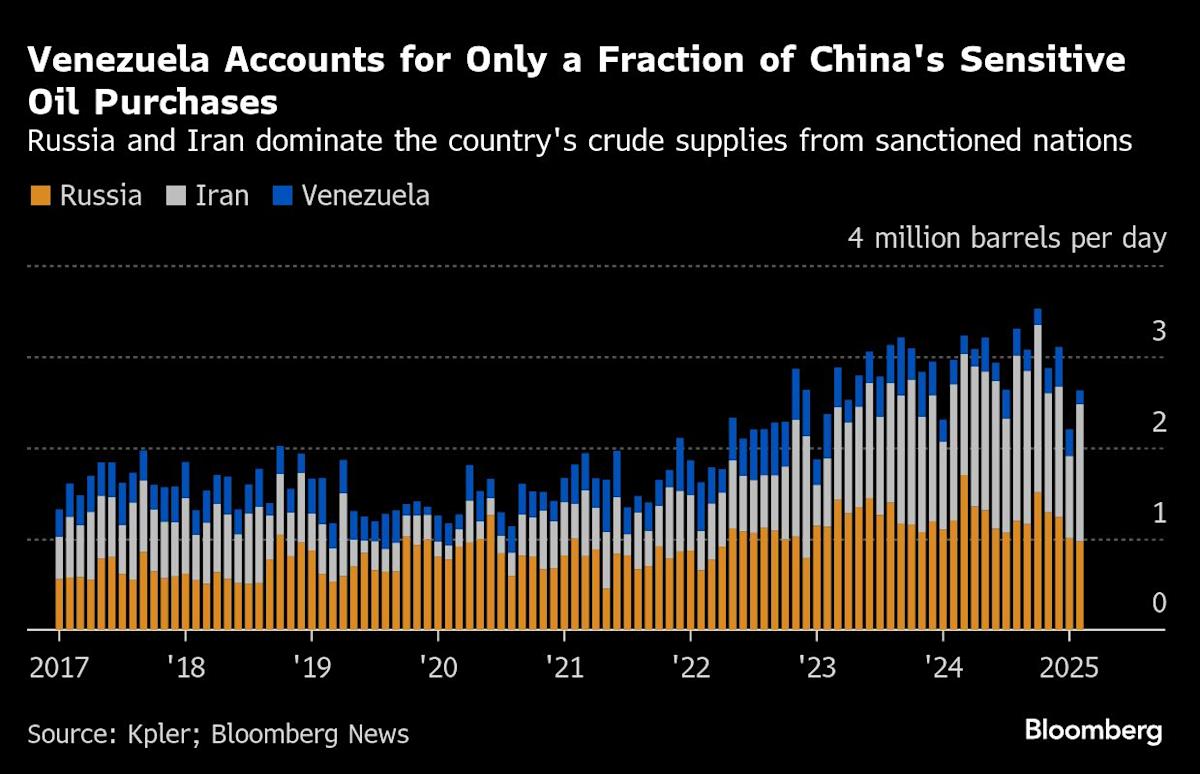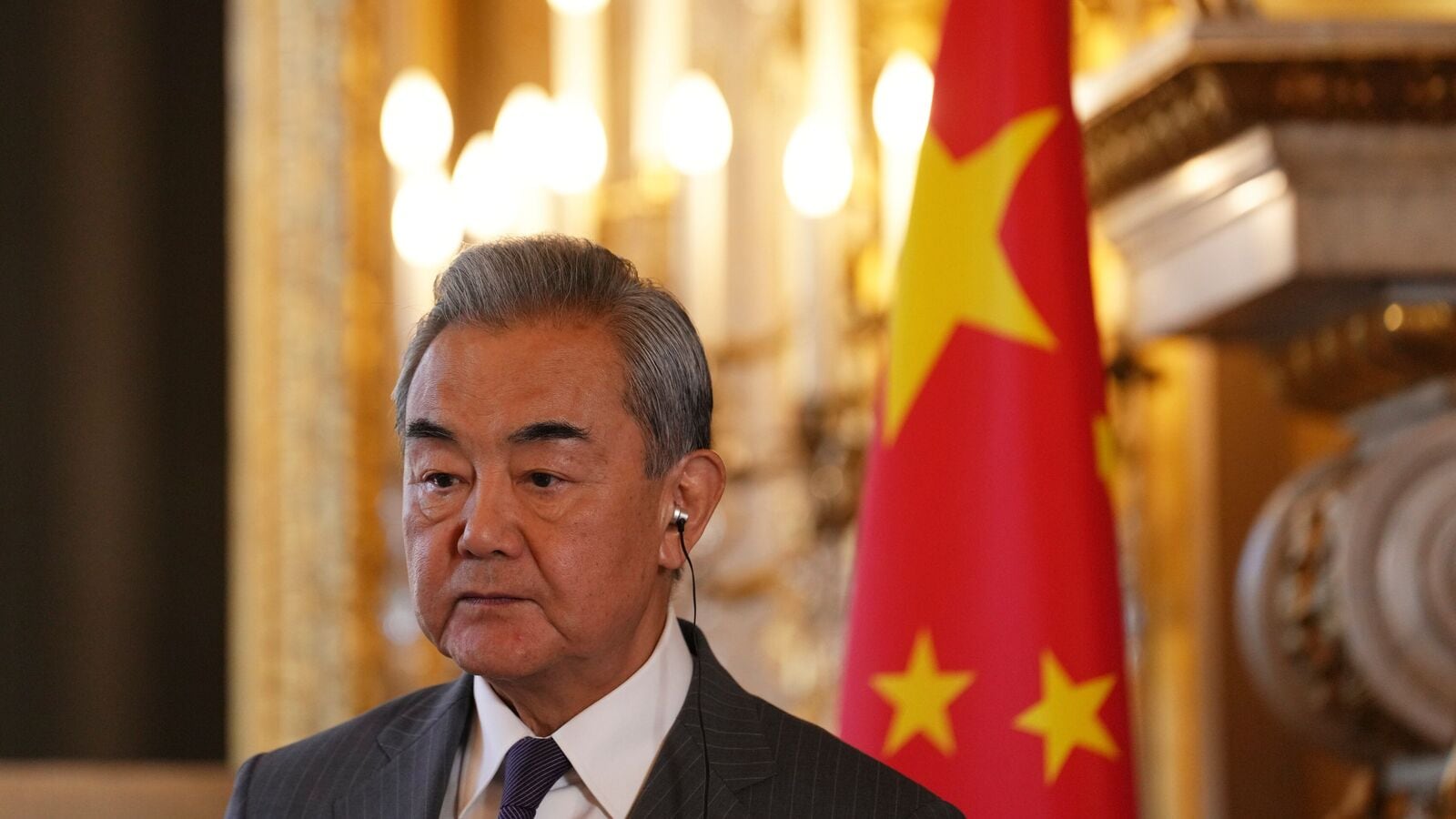(Bloomberg) — China’s private refiners, long plagued by excess capacity and paper-thin margins, are facing yet another setback as the Trump administration imposes a 25% tariff on any buyer of Venezuelan oil and gas.
Most Read from Bloomberg
Beijing has had close commercial and political ties to Venezuela for years, fostering close connections to both Hugo Chavez and his successor, Nicolas Maduro. China has been a key source of funding as well as the single largest buyer of the country’s crude, taking more than 40% of its oil exports in February.
Most Venezuelan oil cargoes go to China’s independent processors, a vast constellation of companies clustered in the eastern province of Shandong, which turn the dense Merey crude into fuel and bitumen to pave roads and for use in the construction sector. The imports can make up as much as a fifth of feedstock at some operations, according to estimates from Chinese analysts.
The latest measures will not be crippling to China’s oil industry — enforcement is difficult, circumventing maneuvers are common and priced-out buyers can turn elsewhere. But they will add cost and curb supply for smaller refiners suffering from weaker domestic demand, a structural shift away from oil for transportation, and US efforts to stem the flow of cheap sanctioned crude from Iran.
Already, over the past year, private refiners have seen low run rates and closures.
“Much like Washington’s latest sanctions on Chinese teapots linked to the Iranian oil trade, I believe Trump’s order is primarily aimed at Venezuela — cutting off its economic ties to the global market and pressuring it to come to the negotiating table with the U.S.,” said Muyu Xu, senior crude oil analyst at analytics firm Kpler in Singapore.
The teapots may temporarily pause purchases as scrutiny increases, traders said, but the flow of sanctioned oil is unlikely to stop. Workarounds, including ship-to-ship transfers in waters off peninsular Malaysia, are instead expected to increase in the coming months.
“Although the secondary 25% tariff will be tough to enforce, licensed companies may think twice about lifting Venezuelan crude,” Xu said, adding China was unlikely to back down. “Part of the reason is that some of the cargoes it lifts fall under sovereign debt agreements backed by Beijing.”

